Click on images to enlarge
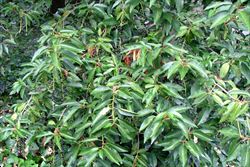
habit (Photo: Sheldon Navie)
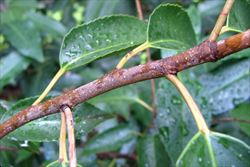
older stem and leaf stalks (Photo: Sheldon Navie)

leaves (Photo: Sheldon Navie)
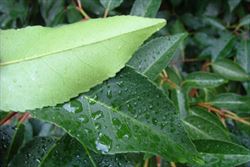
close-up of leaf and leaf underside (Photo: Sheldon Navie)
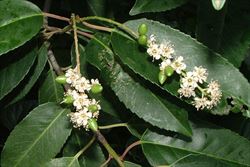
flowers and immature fruit (Photo: Sheldon Navie)
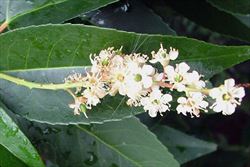
close-up of flowers (Photo: Sheldon Navie)

elongated clusters of mature fruit (Photo: Sheldon Navie)
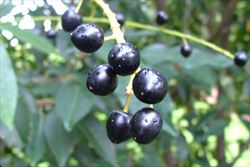
close-up of the shiny black fruit (Photo: Sheldon Navie)
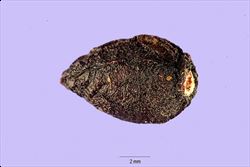
close-up of dried fruit (Photo: Tracey Slotta at USDA PLANTS Database)
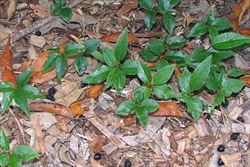
seedlings (Photo: Sheldon Navie)
Scientific Name
Prunus lusitanica L.
Family
Amygdalaceae (New South Wales)Rosaceae (Queensland, the ACT, Victoria, South Australia, Tasmania and Western Australia)
Common Names
Portugal laurel, Portuguese laurel, Portuguese laurel cherry
Origin
Native to south-western Europe (i.e. Portugal, Spain and south-western France), the Azores, the Madeira Islands, the Canary Islands and north-western Africa (i.e. Morocco).
Naturalised Distribution
This species is becoming widely naturalised in south-eastern Australia. It has been recorded in the central tablelands region in New South Wales, in some parts of Victoria and in south-eastern South Australia. It is possibly also naturalised in Tasmania.
Also naturalised overseas in western USA (i.e. California and Oregon) and New Zealand.
Notes
Portuguese laurel (Prunus lusitanica) is regarded as an environmental weed in Victoria and New South Wales.

